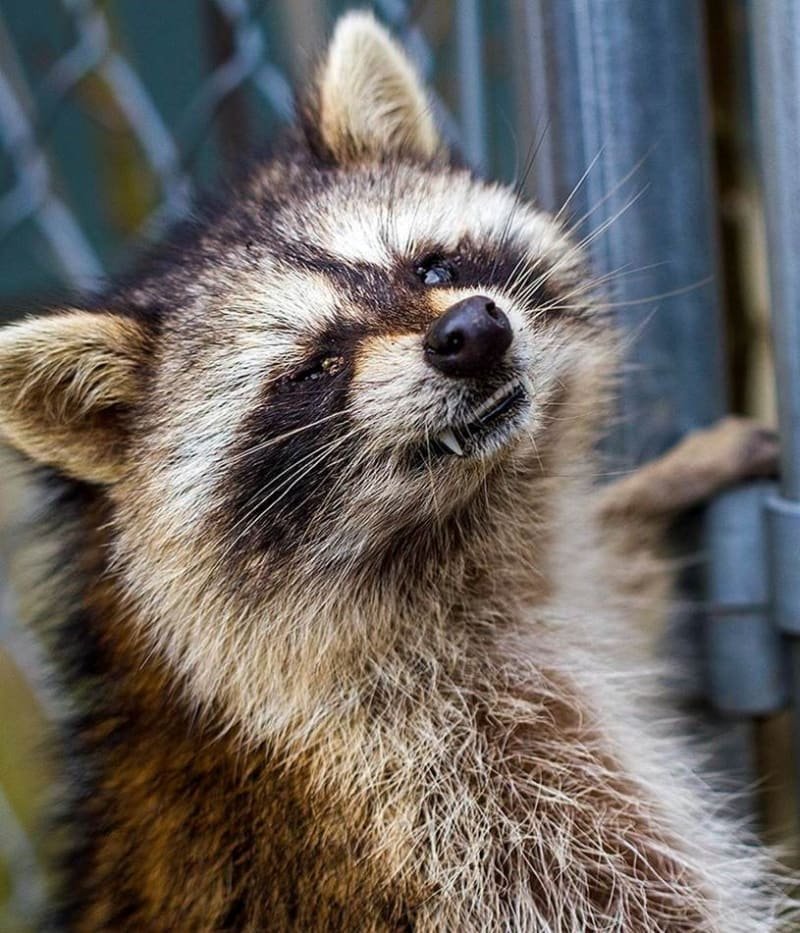Treating a raccoon with distemper requires patience and proper care. The key lies in providing supportive treatment to boost their immune system and alleviate symptoms. Hydration, nutrition, and warmth are crucial in aiding their recovery. Remember, early intervention and a compassionate approach can make a significant difference in the raccoon’s health. Learn more about how to treat a raccoon with distemper in this comprehensive guide.
How to Treat a Raccoon with Distemper
Welcome, young animal enthusiasts! Today, we are going to learn about an important topic – how to treat a raccoon with distemper. Distemper is a serious viral disease that can affect raccoons, causing symptoms like coughing, sneezing, and weakness. But fear not, for there are ways we can help these furry creatures in need. Let’s explore the steps to treat a raccoon suffering from distemper with care and compassion.
Understanding Distemper in Raccoons
Before we dive into treatment options, let’s understand what distemper is and how it affects raccoons. Distemper is a contagious viral disease that can affect a raccoon’s respiratory, gastrointestinal, and nervous systems. It spreads through contact with infected animals or their bodily fluids. Common symptoms of distemper in raccoons include:
- Coughing and sneezing
- Runny nose and eyes
- Weakness and lethargy
- Diarrhea and vomiting
- Seizures and tremors
Distemper can be fatal if left untreated, so it’s crucial to provide proper care for raccoons showing signs of the disease.
Initial Steps for Treating a Raccoon with Distemper
When you encounter a raccoon that may have distemper, it’s essential to take the following steps to ensure the safety of both the animal and yourself:
Step 1: Observe from a Distance
Do not approach the raccoon directly, as it may be scared or aggressive due to its illness. Keep a safe distance and observe its behavior to assess the situation.
Step 2: Contact Wildlife Experts
It’s best to contact local wildlife authorities or animal rescue organizations for help. They have the knowledge and resources to handle sick raccoons safely and effectively.
Step 3: Provide Food and Water
If the raccoon seems weak or dehydrated, you can leave out some water and easily digestible food like fruits or vegetables nearby. Avoid giving any medication without professional guidance.
Professional Treatment Options
Wildlife experts may provide the following treatments for raccoons with distemper:
Quarantine and Supportive Care
Sick raccoons may need to be quarantined to prevent the spread of the disease. They will receive supportive care such as fluids, nutrition, and a comfortable environment to aid their recovery.
Medication and Vaccination
In some cases, veterinarians may administer medications to manage symptoms and improve the raccoon’s condition. Vaccination against distemper may also be recommended for other wildlife in the area.
Caring for Raccoons After Treatment
Once a raccoon with distemper receives proper treatment, it’s important to continue monitoring its progress and well-being. Here are some tips for caring for a recovering raccoon:
Safe Release
After the raccoon has fully recovered, wildlife experts will determine the best time and location for its safe release back into the wild. This process ensures the raccoon has the best chance of survival post-treatment.
Education and Prevention
Help prevent the spread of distemper and other diseases by educating others about the importance of wildlife conservation and responsible interactions with animals. Encourage regular vaccinations for pets to reduce the risk of transmission.
Learning how to treat a raccoon with distemper is a valuable skill that shows compassion and respect for all living creatures. By understanding the symptoms, seeking professional help, and providing care, we can make a positive impact on the well-being of raccoons and other wildlife. Remember, every small act of kindness towards animals makes a big difference in creating a safer and healthier environment for everyone.
Distemper & Seizure Care For Baby Raccoons
Frequently Asked Questions
What are the symptoms of distemper in raccoons?
Raccoons with distemper may exhibit symptoms such as lethargy, discharge from eyes and nose, coughing, tremors, seizures, and a lack of coordination. It is important to be cautious when approaching a raccoon displaying these signs as distemper can be contagious to other animals.
How can I help a raccoon with distemper?
If you encounter a raccoon with distemper, it is best to contact local wildlife authorities or animal control for assistance. They have the expertise and resources to safely handle and treat the raccoon. Do not attempt to handle or treat the raccoon on your own to avoid the risk of exposure to the disease.
Is there a cure for distemper in raccoons?
Unfortunately, there is no specific cure for distemper in raccoons. Treatment mainly focuses on managing the symptoms and providing supportive care to improve the raccoon’s comfort. Euthanasia may be considered in severe cases to prevent suffering and to reduce the spread of the disease to other wildlife.
Final Thoughts
In conclusion, treating a raccoon with distemper involves providing supportive care such as hydration and nutrition. Consulting a wildlife rehabilitator or veterinarian is crucial for proper diagnosis and treatment. Isolation to prevent the spread of the disease is essential. Remember, early intervention and compassionate care are key in helping a raccoon with distemper recover.






+ There are no comments
Add yours